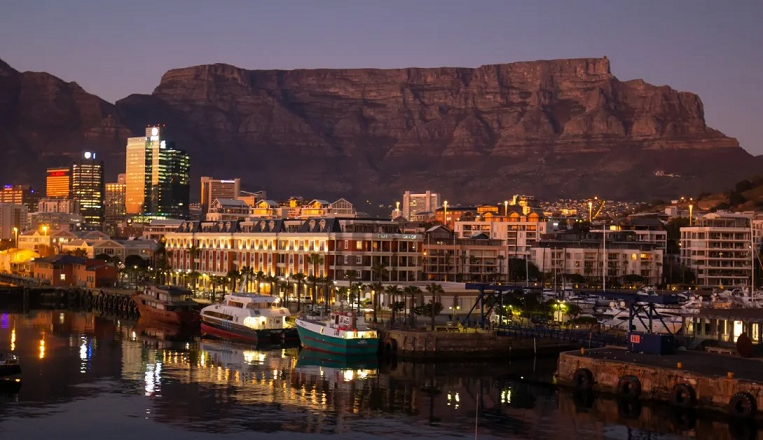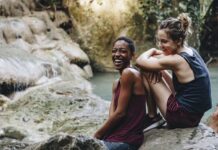By Tarryn Tomlinson, founder of LiveABLE Access Consultants and Cape Town Tourism Board Member
The South African Human Rights Commission identifies disability1 as a critical area for human rights protection and monitoring within the country. With Statistics South Africa indicating a national disability prevalence rate of 7.5%2, the commemoration of Human Rights Day presents a prime opportunity to focus on the role of Destination Marketing Organisations (DMOs) in fostering inclusive and accessible tourism for visitors with disabilities.
Cape Town Tourism, the official DMO for the City of Cape Town, champions the belief that travel should be accessible to everyone, regardless of their abilities. That’s why it launched Limitless Cape Town in 2023, to ensure equal opportunities and access to the Mother City’s vibrant tourist attractions.
Challenges people with disabilities face in the tourism industry
It’s crucial to clear up some concepts and definitions regarding disability or disabled people beyond the numbers and statistics. The social model defines ‘disability’ as the result of the interaction between people living with impairments and an environment filled with physical, attitudinal, communication, and social barriers. It implies that the physical, attitudinal, communication, and social environment must change to enable people with impairments to participate in society.
Navigating the tourism industry presents numerous challenges for people with disabilities, often hindering their full enjoyment of travel experiences. A 2023 Tourism Update poll3 revealed that 41% of respondents were uncertain if access for people with disabilities had improved over the past year, while 35% believed it had not.
The most noticeable obstacles include physical barriers such as inaccessible tourist attractions, hotel rooms, restaurants, stores, bathrooms, and public spaces. These barriers can significantly restrict the travel experiences of disabled tourists, especially those with mobility issues, making it challenging to navigate destinations.
However, persons with disabilities also face social barriers, including prejudices, pity, isolating people with disabilities, or overprotecting them.
Breaking barriers to accessible tourism
Breaking barriers to accessible tourism requires collaboration between businesses and DMO members. These establishments must prioritise accessibility as a competitive advantage and create inclusive policies that accommodate a range of potential visitors, including those with disabilities.
By gathering data on the needs, behaviours, and spending patterns of travellers with disabilities and their families, businesses can better understand how to adapt their offerings and create more inclusive experiences. DMO members are critical in facilitating this process by providing guidance, resources, and support to help businesses implement accessibility strategies effectively.
Furthermore, it is essential to actively involve persons with disabilities in developing these policies to ensure that the tourism industry addresses their needs. By working together, businesses and DMO members can create a more inclusive and accessible tourism industry that welcomes and empowers all visitors, regardless of their abilities.
Cape Town’s pioneering vision of inclusivity
Cape Town Tourism’s Limitless Cape Town movement exemplifies how DMOs can spearhead efforts to make tourism destinations universally accessible and inclusive. Launched with the vision of transforming Cape Town into Africa’s most universally accessible tourism destination, Limitless Cape Town provides accessible and welcoming experiences that inspire people of all abilities to explore the breathtaking beauty and rich culture of the Mother City.
One of the most remarkable stories from this movement is that of Winston Fani, South Africa’s first-ever qualified visually impaired tour guide. Despite losing his sight to glaucoma, Winston refused to let his disability stand in the way of his passion for tourism. With sponsorship from Cape Town Tourism, he obtained his qualification and now offers a unique interactive street art tour in Salt River, sharing his eloquent descriptions and personal perspective as a visually impaired individual.
Winston’s story is a testament to the power of determination and the limitless possibilities that can be unlocked when prioritising inclusivity. It’s an inspiration to break down barriers and create opportunities for persons with disabilities to participate fully in every aspect of society, including travel and tourism.
Making Cape Town’s iconic attractions more accessible
The Limitless Cape Town movement has also seen Cape Town Tourism install braille touchpoints on street art murals and at key tourist attractions across the city, including the iconic yellow frames that showcase the most spectacular views of Table Mountain and the Atlantic seaboard. These touchpoints include the V&A Waterfront, Signal Hill, District Six and more, which are complemented by QR codes leading to audio content, enabling visually impaired visitors to experience the beauty of our city through vivid descriptions.
Cape Town Tourism has changed the way they create social media content by adding audio options and creating accessibility maps. They will also conduct sensitivity training workshops with industry and members. We’re also passionate about empowering the next generation of differently-abled leaders in tourism through a targeted CTT Future Leaders programme and youth initiatives.
Cape Town Tourism’s challenge to DMOs
Human Rights Day is an opportunity for DMOs and tourism industry stakeholders to rise to the challenge of promoting universal access and creating a more inclusive industry that everyone can explore without limits.
By breaking down barriers and creating opportunities for all, DMOs can unlock the limitless potential of tourism to transform lives and build a more just and equitable society.
Article Provided




























